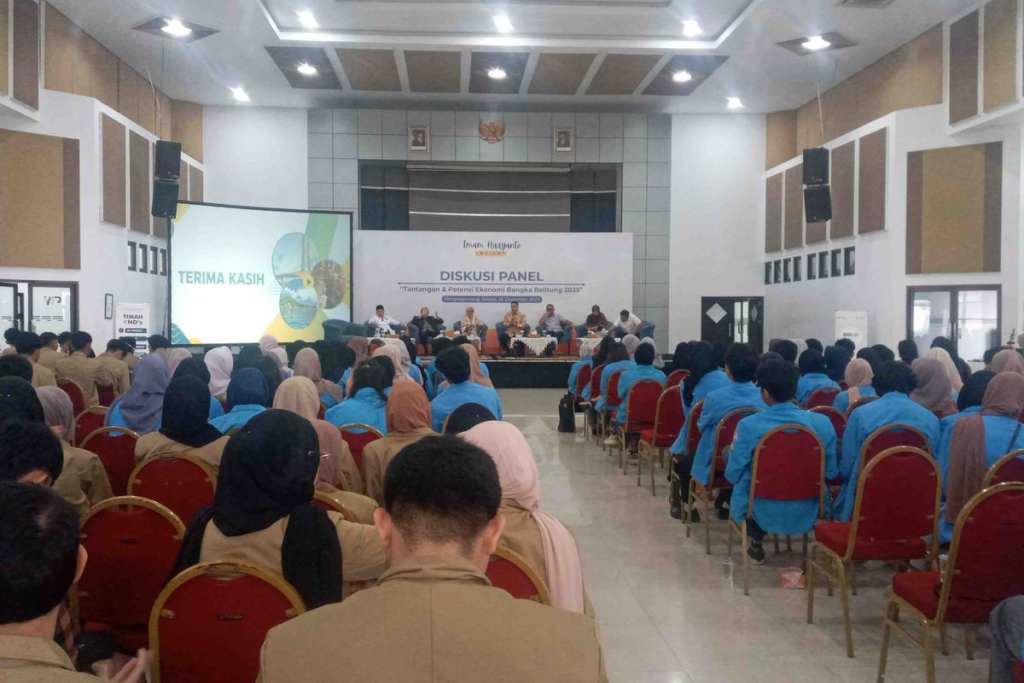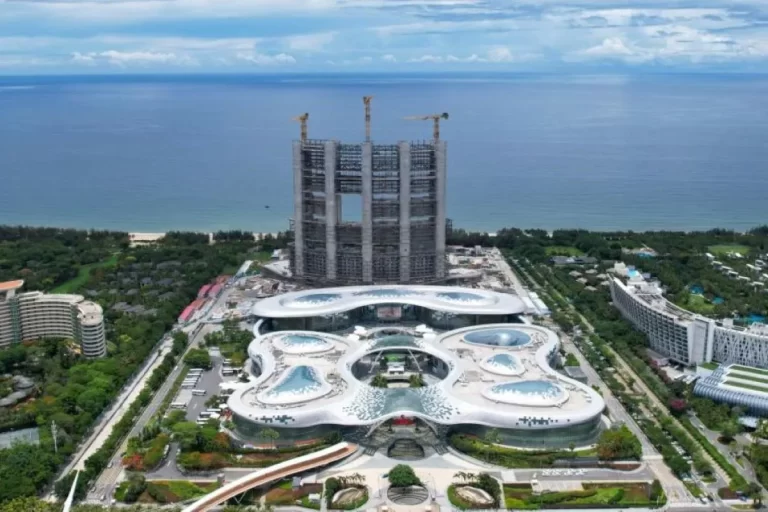

Bangka Belitung’s economy grew by just 0.13% in 2024, a figure far below expectations. Despite the region’s abundant natural resources, especially tin, which has long been the backbone of the local economy, one of the key issues holding back economic progress is the royalty from tin production, which has remained stagnant. This issue, along with other factors, has raised questions about the effectiveness of current policies and their impact on the region’s economic future.
The Primary Cause: Stagnant Tin Royalties
For years, tin has been a significant contributor to Bangka Belitung’s economy, with the mineral being one of the province’s primary exports. However, the royalty from tin mining has not seen substantial increases, despite stable global demand for tin. Many experts argue that the government’s royalty rates have not been adjusted to reflect the current market conditions, meaning that the local government is not reaping the full benefits from its natural resources.
While global tin prices have been relatively high, the tin royalties received by the provincial government have not increased significantly. This stagnant royalty income is seen as one of the main factors behind the sluggish economic growth in the region. Economists and industry analysts are calling for a review of the royalty system to ensure that it aligns better with the actual value of tin production.
The Continued Dependence on Tin for Economic Growth
Although other sectors, such as tourism and agriculture, are beginning to show promise, tin remains the dominant sector in Bangka Belitung’s economy. The vast majority of the local population depends on the mining industry, and the economic downturn has highlighted how vulnerable the region is to fluctuations in the tin market and regulatory changes in the mining sector.
One of the major concerns is the lack of economic diversification in Bangka Belitung. While industries such as tourism and agriculture are growing, they still account for a small fraction of the province’s total economic output. This heavy dependence on tin has made the local economy highly susceptible to global market shifts and changes in mining policy.
Impact on Employment and Investment
The stagnation in the economy is not just a number on a chart; it’s being felt by the people of Bangka Belitung. Many local workers in the tin mining sector face uncertainty due to declining revenues from mining royalties, which impacts their livelihoods. Additionally, the lack of new investments in the region is contributing to higher unemployment rates and lower overall economic opportunities.
The region’s reliance on tin as its primary economic engine has left it vulnerable to changes in global demand for the commodity. As a result, local entrepreneurs are struggling to expand into other sectors, and foreign investors are cautious about entering a market that is still heavily dependent on one industry.
What Can Be Done to Revive Bangka Belitung’s Economy?
The government of Bangka Belitung faces a challenging task in addressing these economic issues. One key step that can be taken is to review and adjust tin royalty rates to ensure that the local government is getting a fair share of the revenues from mining. A fairer royalty system could help generate more income for the region, which could then be reinvested into economic development programs.
Moreover, there is an urgent need for economic diversification in Bangka Belitung. The province cannot afford to remain overly reliant on one industry, particularly one as volatile as mining. The government must create policies that encourage the growth of other sectors, such as tourism, fisheries, and manufacturing, to reduce the region’s dependence on tin.
The Potential of Tourism and Other Sectors
Despite the heavy reliance on tin, tourism is one sector that holds great potential for Bangka Belitung. The province boasts beautiful beaches, natural reserves, and a rich cultural heritage, which could attract both domestic and international tourists. Developing the tourism industry could help create new jobs and stimulate local businesses, providing an alternative source of income for the region.
Improving infrastructure, enhancing marketing efforts, and developing sustainable tourism programs could transform Bangka Belitung into a leading tourist destination in Indonesia. Additionally, sectors like fisheries and agriculture can also be expanded, particularly if the local government can attract investment and improve the productivity of these industries.
Sustainable Resource Management
Sustainable management of natural resources is another critical step toward ensuring the long-term economic viability of Bangka Belitung. Mining practices, especially in tin extraction, should adopt more eco-friendly technologies and practices to mitigate environmental damage. This not only helps preserve the local environment but also ensures that the mining sector can continue to operate for years to come without depleting resources or damaging the ecosystem.
Conclusion: A Call for a Diversified and Resilient Economy
Bangka Belitung’s economic growth of just 0.13% highlights the pressing need for change. Tin royalties and the ongoing dependence on the mining industry are holding back the region’s potential. To build a more resilient and sustainable economy, the government must look at adjusting tin royalty policies while encouraging economic diversification. By tapping into the province’s tourism potential and expanding other sectors, Bangka Belitung could unlock new avenues of growth, providing better opportunities for its people and ensuring a brighter economic future.


